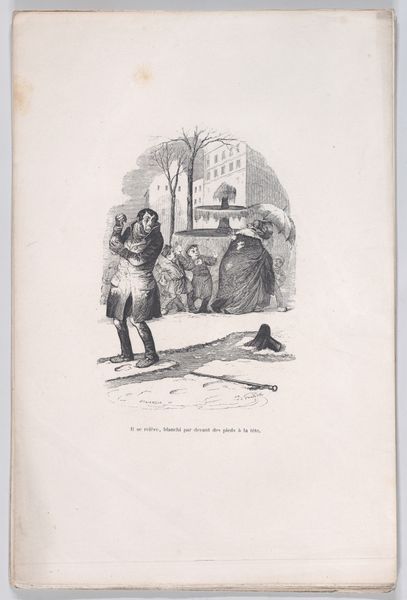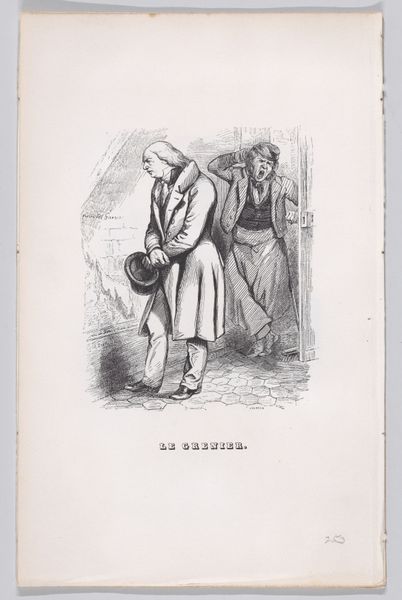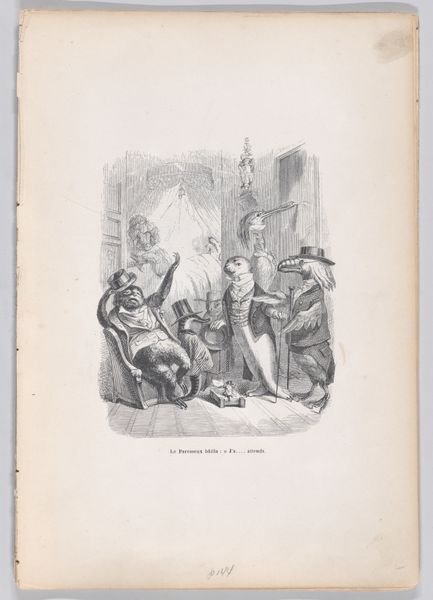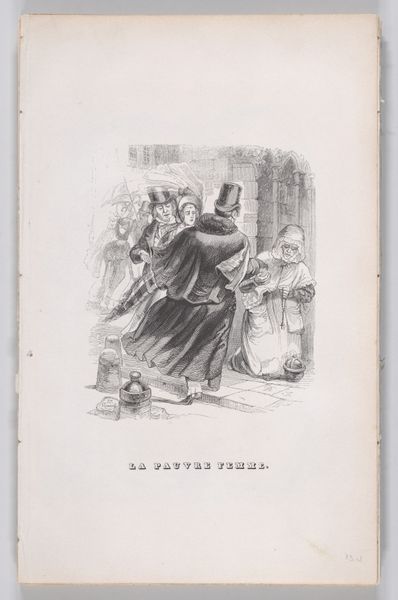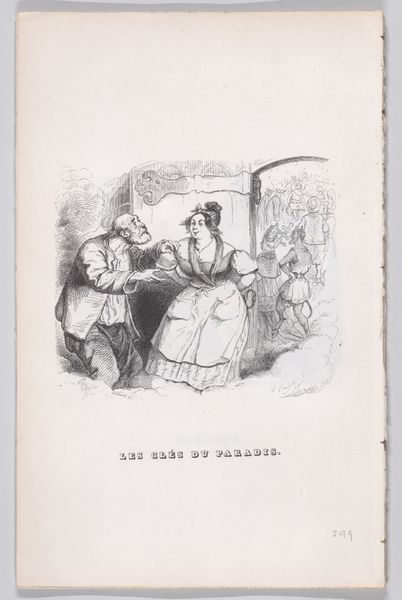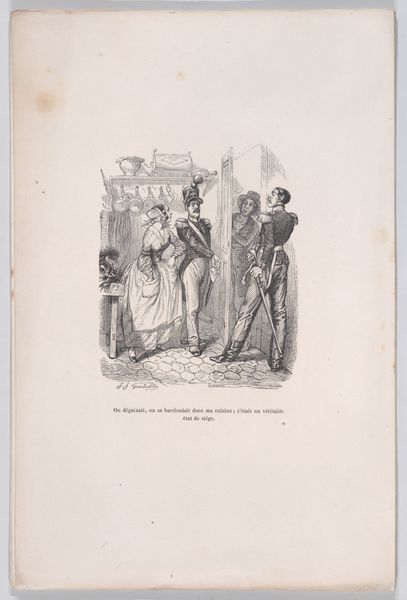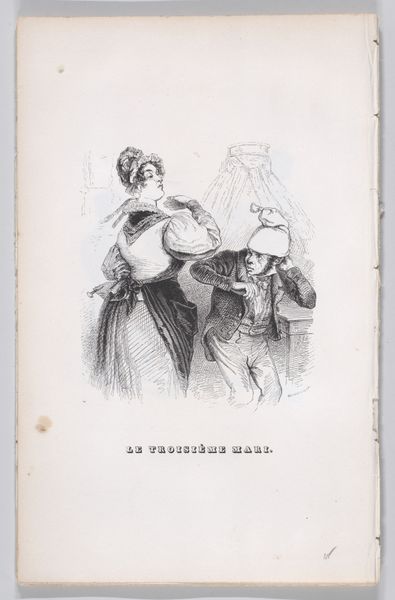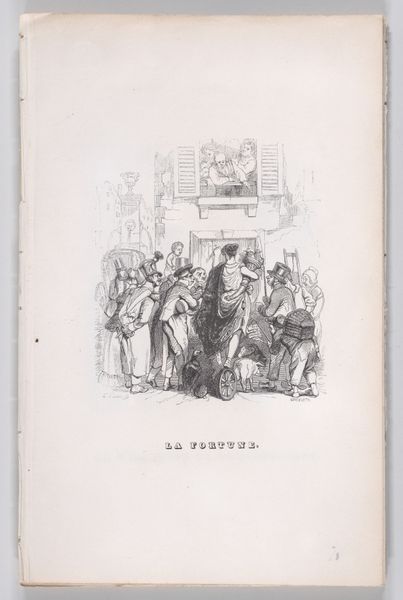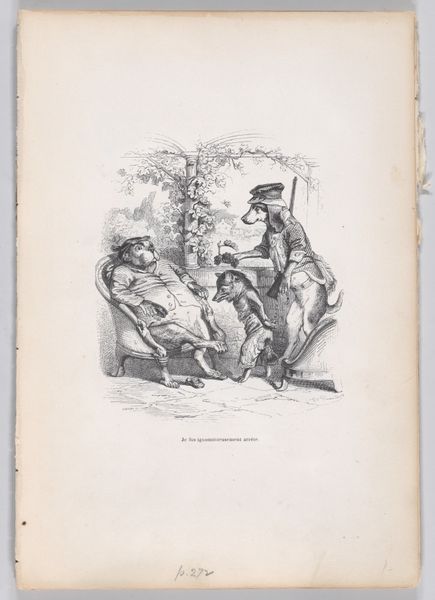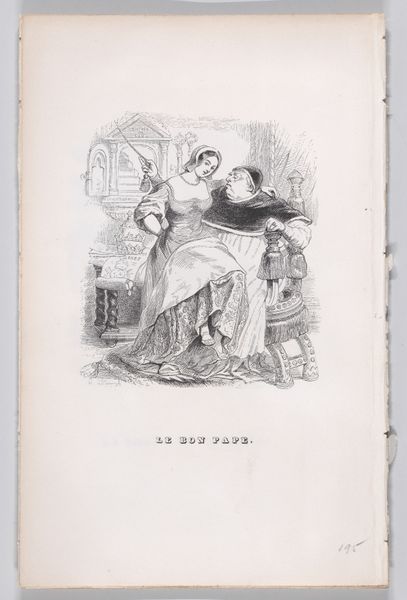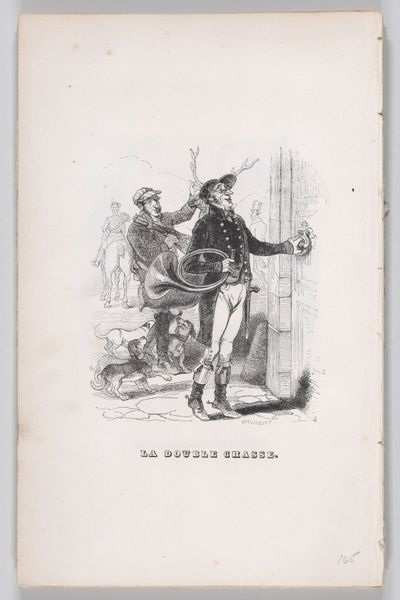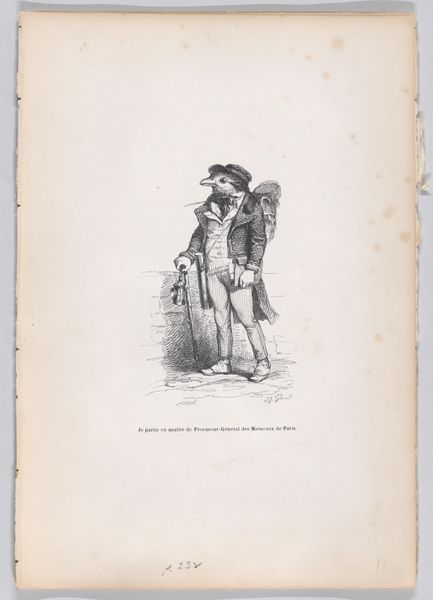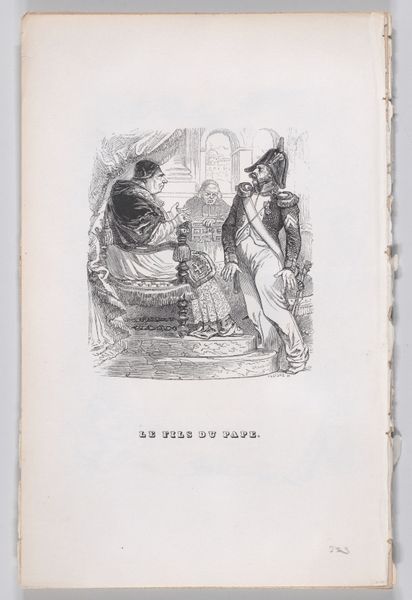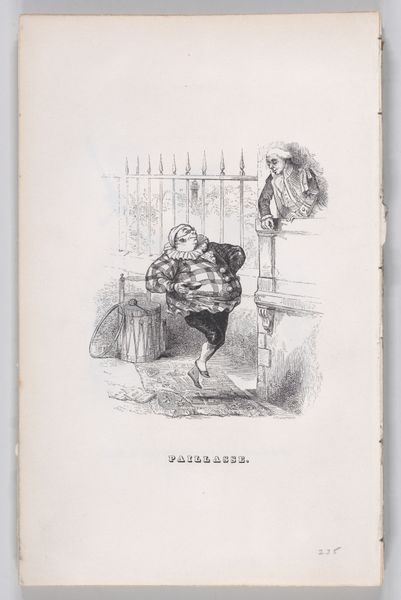
"The Poor Putti" from The Complete Works of Béranger 1836
0:00
0:00
drawing, print, paper, engraving
#
portrait
#
drawing
# print
#
figuration
#
paper
#
romanticism
#
engraving
Dimensions: Sheet: 8 5/8 × 5 1/2 in. (21.9 × 14 cm)
Copyright: Public Domain
Curator: Ah, here we have "The Poor Putti," an engraving from 1836, created by J.J. Grandville as part of his work on Béranger’s complete works. What leaps out at you? Editor: It’s melancholy. The scratchy, dense linework almost feels like a physical representation of sorrow, huddling around this woman… Is she their mother? Curator: Not in the literal sense, no. It’s more symbolic. You see, in Grandville’s time, putti—those cherubic figures, often symbolizing love—were becoming a bit cliché, used excessively in art and decoration. He’s depicting a kind of “poverty” of genuine affection. They are literally pawning themselves off on the upper class. Editor: So the woman is meant to represent, perhaps, an older ideal of love or a wealthy individual unable to experience true affection? She certainly seems burdened by them rather than joyful. Look at the shadow over her eyes. Curator: Exactly. Grandville was a master of satire, and in this print, he uses the putti as a commentary on the superficiality he saw creeping into society and relationships. Note how some appear worn, even tattered, their wings drooping. Editor: The figure peering from behind the doorway seems disapproving too. Is that supposed to be some commentary as well? She is so unlike the figures presented in the scene. Curator: It could suggest genuine love observing this sad pantomime, yes. This image encapsulates themes that run deeply through Romanticism and even touches on very current sentiments about contemporary society. Editor: It feels like a warning. All this "love" offered at a price comes across as tragically hollow. It speaks volumes even today about manufactured emotions. Curator: Absolutely. It's amazing how relevant this commentary remains after all this time. A powerful reminder that some symbols never truly fade, do they? Editor: Never, especially if they reflect a continuous search for true emotion, despite societal evolution.
Comments
No comments
Be the first to comment and join the conversation on the ultimate creative platform.
